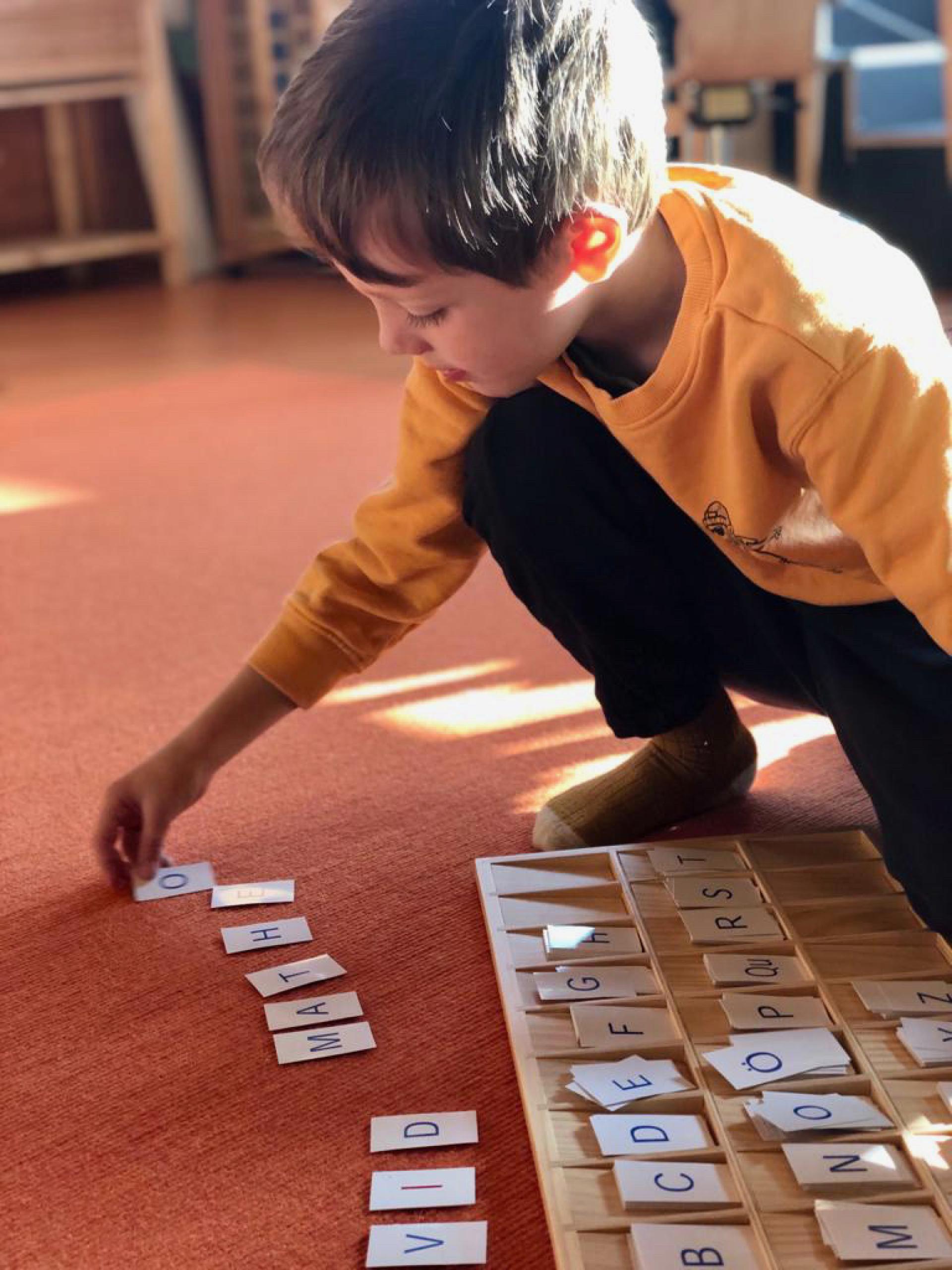Montessori Pedagogy
“Help me to do it myself! Show me how to do it. Don't do it for me. I can and want to do it on my own. Have patience to understand my ways. They may be longer; I may need more time because I want to make several attempts. Allow myself to make mistakes. Because I can learn from them.” Maria Montessori
Montessori education is an important pillar of our school concept. Maria Montessori places the child at the centre of a holistic educational concept. Age-related and individual needs of the child, time-limited receptivity during sensitive phases, experience- and interest-orientated activities and the child's striving for independence are part of this pedagogy. Independent and action-orientated learning corresponds to the primary school child's need to gather their own concrete experiences. The knowledge and principles gained from this can be transferred to other contexts. The following oft-quoted sentence expresses the child's basic need:
‘Help me to do it myself! Show me how to do it. Don't do it for me. I can and want to do it myself. Have patience to understand my ways. They may be longer, I may need more time because I want to make several attempts. Allow myself to make mistakes. Because I can learn from them.’ Maria Montessori
Children need freedom to develop their personality, says Maria Montessori. The so-called ‘prepared environment’ provides the framework for daily free work. The children find extensive work and development materials clearly organised on shelves by subject. Each child can choose their own learning material and work on it at their own pace after an introduction by the teacher. However, the freedom is not unlimited. Once a child has started work, they are also responsible for completing it. Clear and binding work rules apply so that each child can pursue his or her own work interests and self-selected tasks undisturbed. The age mix is the basis for social education. Children from different age groups learn together in our class. The children learn with and from each other. In the prepared environment, they find work materials that meet the requirements of their respective year group. Competitive thinking and competition fade into the background and respect for the performance of the individual and consideration for personal characteristics grow.
Montessori education is an important pillar of our school concept. Maria Montessori places the child at the centre of a holistic educational concept. Age-related and individual needs of the child, time-limited receptivity during sensitive phases, experience- and interest-orientated activities and the child's striving for independence are part of this pedagogy. Independent and action-orientated learning corresponds to the primary school child's need to gather their own concrete experiences. The knowledge and principles gained from this can be transferred to other contexts. The following oft-quoted sentence expresses the child's basic need:
‘Help me to do it myself! Show me how to do it. Don't do it for me. I can and want to do it myself. Have patience to understand my ways. They may be longer, I may need more time because I want to make several attempts. Allow myself to make mistakes. Because I can learn from them.’ Maria Montessori
Children need freedom to develop their personality, says Maria Montessori. The so-called ‘prepared environment’ provides the framework for daily free work. The children find extensive work and development materials clearly organised on shelves by subject. Each child can choose their own learning material and work on it at their own pace after an introduction by the teacher. However, the freedom is not unlimited. Once a child has started work, they are also responsible for completing it. Clear and binding work rules apply so that each child can pursue his or her own work interests and self-selected tasks undisturbed. The age mix is the basis for social education. Children from different age groups learn together in our class. The children learn with and from each other. In the prepared environment, they find work materials that meet the requirements of their respective year group. Competitive thinking and competition fade into the background and respect for the performance of the individual and consideration for personal characteristics grow.

